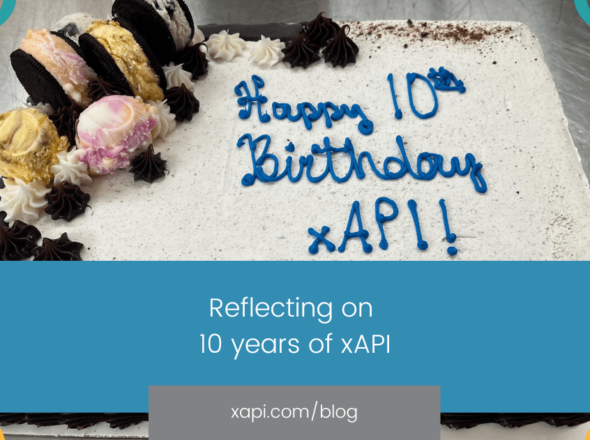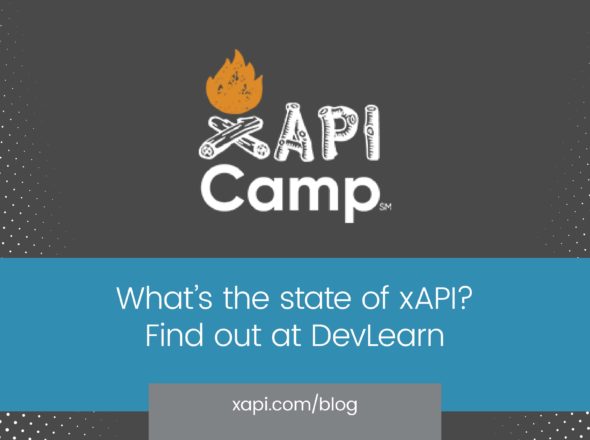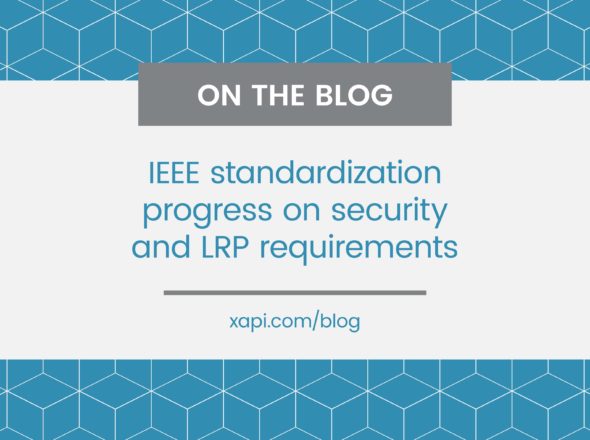It’s not our role to try and capture and categorize every snippet of new knowledge and behavior that an individual uses. This is why I am very scared about how the new Experience API will be sold to businesses. I have a fear it will be a tool that measures everything but understands nothing about the value of its content (like most LMS I hear some of you say). I believe the manager’s role is to measure the performance in the workplace, yet there seems to be a desire to retain this measurement within L&D to ‘prove’ it was our work that created the difference. What this means is:
- We absolve managers from taking responsibility for measuring their staff’s development
- We create complex metrics
- We create the learning objectives for the performance support
(Context: I’m Tim Martin, a partner at Rustici Software, and have been a part of Project xAPI from the beginning of the research through detailed specification arguments over the last two weeks. I’ve also suffered through SCORM’s inadequacies over the last 10 years. I know the pain. I’ve also posted this as a response with the original post.)
First of all, let me begin with this. If anyone ever tells you that Experience API is “a tool that measures everything but understands nothing about the value of its content”, please stop listening to them.
Second, I think you’re hitting on some really important stuff here. What fascinates me about it, actually, is that you and I _agree_ on a great deal of this. This sentence, in particular, rings true for me.
We absolve managers from taking responsibility for measuring their staff’s development.
In the long term, this is precisely why I find xAPI exciting. To be clear, xAPI is not simply a different way to capture learning objectives or scores. When used to its full extent, it will allow people to have a cross-system picture of the things that their staff (or students, or children) are doing. This cross-system, cross-experience picture is almost completely missing from today’s workplace (and schools, and homes). Yes, we have various systems that give us a slice of the picture about what a person is doing. Salesforce can tell us how many sales calls a person makes. Github can tell us how much code a developer produces. But no system can aggregate the activities for a person or a group. And that aggregate picture, well-parsed, will undoubtedly tell us things about the people who are successful and those who aren’t. (Similarly, a single person’s clicks on a website may not be telling, the collection of clicks across people and contexts tells us a story.)
In the immediate, xAPI will be about eliminating some shortcomings of SCORM, yes. Things like mobile limitations and bad reporting on questions and answers can be solved quickly and simply. So, yes, xAPI will address those things first. And yes, in the long term, xAPI is a language that will allow systems to convey the activities of people, whether those activities are small (a learning objective) or huge (a significant accomplishment).
For a period of time, I expect to see xAPI statements that are marginally more interesting than SCORM data. Did Sam complete his defensive driving course? Did Sally answer the third question correctly? Tool vendors and designers will start by capturing things they already understand in a different language (xAPI). Step one is always about understanding the basic constructs (scales on a piano, hello, world in a programming language. 2012 and 2013 may be about that simple.
When creative people, though, start thinking about the experiences they actually care to capture, they’ll be able to do more than they could for the last 10 years, and that’s important. If done well (and this is still an if), systems will be able to express people’s activities with limited interference for the participant. When I, as a manager of people at Rustici Software, am able to look at my staff’s experiences across systems, I believe I will be far better able to assess their performance *and enhance it*. As L&D professionals, and as people, I really think that’s about the most important thing we can do in our organizations. I want to help people who are always striving to do better and more interesting work to do just that.


